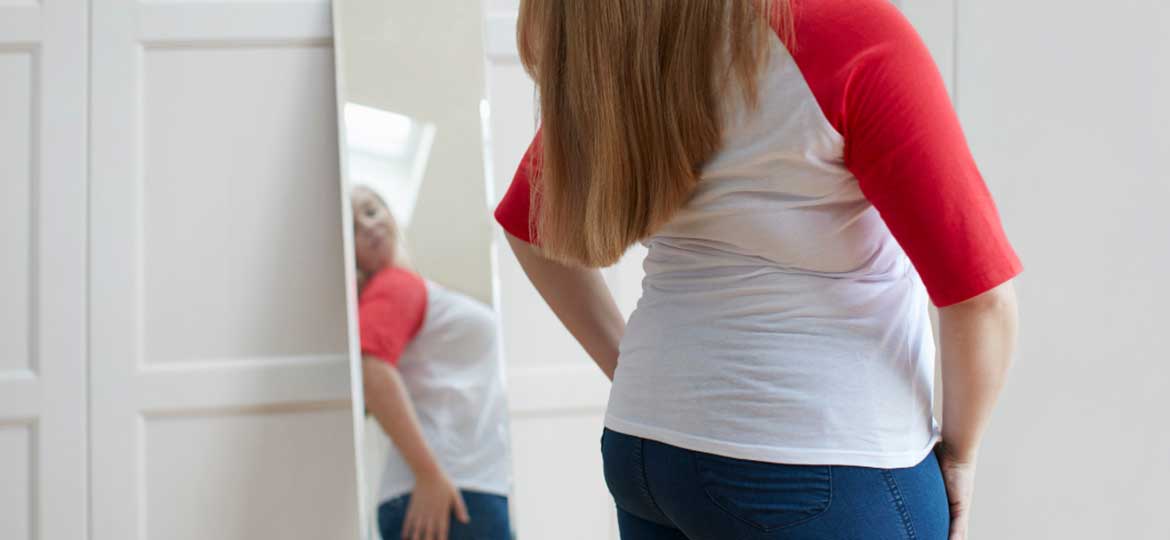Calgary Body Image Therapy and Counselling: Nurturing Self-Acceptance and Well-Being

At our Calgary Psychologist Clinic, our therapists specialize in supporting individuals on their journey towards cultivating a positive body image and enhancing self-esteem. Body image therapy is a specialized form of therapy designed to help individuals improve their relationship with their bodies, fostering self-acceptance and well-being.
Understanding Body Image Therapy
Body image therapy offers a safe and nonjudgmental space for clients to explore their thoughts, feelings, and beliefs about their bodies. With the guidance of a psychologist, individuals address negative body image distortions, challenge societal beauty standards, and navigate harmful self-comparisons.
Our Calgary Psychologists Providing Body Image Therapy and Counselling
Dr. Raheleh Tarani
Registered Provisional Psychologist
English, Farsi, Japanese (basic), Hindi, Turkish, Punjabi, Urdu
Jarret Verwimp
Clinical Canadian Certified Counsellor
English, French, Spanish (basic)
Andrea Krygier
Registered Psychologist
English, Spanish
Murray Molohon
Registered Psychologist
English
Preeti Rakhra
Registered Provisional Psychologist
English, Hindi
The Therapy Process
Exploration and Insight: Therapy begins with the exploration of the origins of negative body image, uncovering underlying emotional or psychological factors contributing to dissatisfaction. Through this process, clients gain insight into the root causes of their negative body image.
Goal Setting: Collaboratively, therapist and client set realistic goals for improving body image and self-esteem. These goals may include developing self-compassion, challenging negative self-talk, practicing self-care, and engaging in activities that promote body acceptance.
Therapeutic Techniques: Body image therapy utilizes evidence-based techniques tailored to individual needs. Cognitive-behavioral therapy (CBT) helps identify and restructure negative thought patterns, fostering more positive and realistic self-perceptions. Mindfulness and acceptance-based approaches cultivate nonjudgmental and compassionate attitudes toward the body.
Group Therapy: Group therapy offers a supportive environment for individuals to share experiences, gain feedback, and find validation. Connecting with others facing similar challenges fosters understanding and promotes healing.
Addressing Eating Disorders: Body image therapy recognizes the connection between body image and eating disorders. Therapists identify disordered eating patterns, address emotional issues, and help clients establish a balanced relationship with food.
Comprehensive Support for Well-Being
At our Calgary Psychologist Clinic, we are committed to providing comprehensive support for individuals seeking to improve their body image and overall well-being. Through our body image therapy sessions, we offer a safe and nurturing environment where you can explore your relationship with your body and work towards cultivating self-acceptance.
We understand that taking the first step towards therapy can be daunting, which is why we offer a free consultation to discuss your needs and determine how our services can support you on your journey to a healthier body image and improved self-esteem. Reach out to us today to schedule your consultation and take the first step towards a more positive relationship with yourself.
Body Image Therapy Process
The therapy process typically involves several components. First, the psychologist assists clients in developing self-awareness by exploring the origins of their negative body image and identifying any underlying emotional or psychological factors that contribute to their dissatisfaction. By uncovering these underlying issues, clients can gain insight into the root causes of their negative body image.
Next, the therapist works collaboratively with the client to set realistic and achievable goals for improving body image and self-esteem. These goals may include developing self-compassion, challenging negative self-talk, practicing self-care, and engaging in activities that promote body acceptance.
Therapeutic techniques employed in body image therapy can vary depending on the psychologist’s approach and the client’s specific needs. Cognitive-behavioral therapy (CBT) techniques are commonly used, which involve identifying and restructuring negative thought patterns and replacing them with more positive and realistic thoughts. Mindfulness and acceptance-based approaches are also utilized to help clients cultivate a nonjudgmental and compassionate attitude toward their bodies.
In addition to individual therapy sessions, group therapy may be incorporated into body image therapy. Group therapy provides a supportive environment where individuals can share their experiences, receive feedback, and gain a sense of validation and understanding from others facing similar challenges.
Body image therapy also addresses the connection between body image and eating disorders. Psychologists specializing in this area are skilled in identifying disordered eating patterns and providing appropriate interventions. They work closely with clients to address underlying emotional issues, develop healthy coping strategies, and establish a balanced and nourishing relationship with food.
Our Calgary Psychologist Clinic offers individuals a comprehensive approach to improve their body image and overall well-being. By addressing the underlying factors contributing to negative body image and implementing evidence-based therapeutic techniques, clients can develop a healthier relationship with their bodies and cultivate a positive sense of self.
Therapy for Body Image Issues: What Research Actually Shows Works

The numbers are startling – 60% of women and 40% of men don’t feel good about their bodies. This self-image problem stays with people throughout their lives. Therapy can help with body image problems, and research shows picking the right type makes all the difference.
When someone’s view of their body gets distorted, it can really mess with their mental health. Depression, social anxiety, and eating disorders often follow. The good news is that proven treatments work. Studies back this up, showing real success with approaches like Cognitive-Behavioral Therapy and mindfulness-based treatments. These methods help people change unhealthy thought patterns and build a better relationship with their bodies.
This piece dives into the best ways to treat body image issues, all backed by the latest research and clinical proof.
Understanding Body Image Issues in Mental Health
Body image shapes how we think, feel, and act about our physical appearance. It includes cognitive, subjective, and behavioral aspects [1].
Diagnostic Criteria and Assessment
Medical professionals review body image problems by looking at both perception and attitude. New research shows that emotional and attitudinal factors influence how people see themselves [1]. Doctors use different methods to measure everything from body satisfaction to behavior patterns. These measurements now help determine if treatments work in different situations [1].
Impact on Overall Mental Wellbeing
Poor body image takes a heavy toll on mental health. Research shows that people who dislike their bodies often have low self-esteem, depression, anxiety, and eating disorders [1]. Studies reveal that 34% of adults experience anxiety and 35% struggle with depression because of how they see their bodies. About 13% have had thoughts of suicide [2]. People with negative body image often feel isolated, lose confidence, and obsess about losing weight [3].
Risk Factors and Contributing Factors
Several factors make people more likely to develop body image problems:
Biological Factors: Early puberty, genetic makeup, and family history of eating disorders [4]
Psychological Elements: Being perfectionist, sensitivity to criticism, and existing mental health issues [4]
Sociocultural Influences: Media exposure, peer pressure, and society’s beauty standards [4]
Body dissatisfaction now affects people from all backgrounds [1]. Some groups face higher risks, especially during major life changes like teenage years, pregnancy, and menopause [4]. People who have experienced trauma or live with chronic illness often develop complicated relationships with their bodies. They frequently feel frustrated, angry, and think negatively about themselves [4].
Evidence-Based Therapeutic Approaches
Research shows several effective ways to treat body image concerns. Each approach offers unique benefits and methods.
Cognitive Behavioral Therapy (CBT) Methods
CBT remains the go-to treatment for body image disorders. It has shown remarkable results in improving cognitive, affective, and behavioral symptoms [1]. The approach targets three main areas:
Cognitive restructuring to change unhelpful thoughts
Exposure therapy to decrease avoidance behaviors
Ritual prevention strategies to handle appearance-fixing habits
Studies show CBT helps reduce avoidance behaviors and appearance-fixing rituals effectively [1]. The method helps people develop acceptance and cognitive reappraisal strategies. These strategies are vital mediators in making the treatment work [1].
Acceptance and Commitment Therapy (ACT)
ACT takes a different path by focusing on psychological flexibility instead of reducing symptoms. ACT participants achieved significant reductions in eating disorder symptoms. They needed less specialized care even after two years [5].
The therapy includes six core parts: experiential acceptance, defusion techniques, present-moment awareness, self-as-context understanding, values clarity, and committed action [6]. People learn to welcome their experiences without trying to change them. This creates psychological distance from harmful thoughts about body image.
Dialectical Behavior Therapy (DBT) Applications
DBT blends mindfulness practices with emotional regulation strategies through four basic skill modules [6]. People learn to handle difficult emotions without destructive behaviors. Research shows DBT participants had better abstinence rates from binge/purge behaviors (28.6%) than control groups [7].
Treatment combines weekly individual therapy sessions with skills training groups [3]. DBT works well across all gender identities, sexual orientations, ages, races, and ethnicities [3]. The approach tackles the emotional dysregulation that often fuels negative body image perceptions.
Clinical results show DBT helps people with complex issues, including those who have multiple disorders or need various types of therapy [7]. The method balances acceptance with change and teaches practical skills for emotional regulation and interpersonal effectiveness.
Body Image Therapy Techniques and Activities
Body image concerns need therapeutic techniques that use well-laid-out activities to change how people think, behave and see themselves. Research backs several methods that help create a healthier viewpoint of one’s body.
Mirror Exposure Exercises
Mirror exposure therapy is one of the best ways to help with body image distortion. Studies confirm it reduces distress about body image. The therapy asks people to look at themselves in fitted clothing while standing in front of a mirror [2]. There are two main ways to do this:
Pure Mirror Exposure: People focus on feelings that come up as they look at their body without avoiding parts of it
Guided Mirror Exposure: A therapist helps describe physical features using neutral words [8]
Studies show that mirror exposure changes how people process their self-image. It shifts interpretation patterns and reduces focus on perceived flaws [2]. The technique also helps people get used to negative feelings, which leads to less anxiety during and between sessions [8].
Mindfulness-Based Interventions
Mindfulness works well to boost body image satisfaction. Research shows that mindfulness-based cognitive therapy (MBCT) helps control emotions and improves executive functioning [9]. The therapy teaches several key strategies:
Better emotion control
Awareness without judgment
Focus on the present moment
Metacognitive awareness
Clinical studies reveal that Mindfulness-Based Stress Reduction (MBSR) helps teenage girls who have unhealthy eating attitudes deal with body image concerns [10]. Research also shows that mindfulness-based treatments have an effect size of -0.59 in reducing body image dissatisfaction among people seeking clinical help [11].
Behavioral Experiments and Challenges
Behavioral experiments are the foundations of body image therapy. They aim to change unhelpful behaviors and test negative thoughts about oneself [12]. These organized activities help people:
Challenge their assumptions about appearance through careful exposure to difficult situations [4]. People then collect evidence that goes against their negative self-image, which builds their confidence in handling body dysmorphia symptoms [4].
Research supports using behavioral experiments along with cognitive restructuring. These experiments help reduce appearance-fixing habits and build better coping skills [12]. Studies also show that when people consistently break their behavioral patterns, they see lasting improvements in how they view their body [4].
Addressing Body Image Distortion
Research shows that treating body image distortion needs an integrated therapeutic approach that blends perceptual, cognitive, and behavioral interventions. Studies reveal that body size overestimation predicts treatment outcomes in adolescent patients [13].
Perceptual Retraining Techniques
Perceptual retraining aims to correct distorted body image perception through systematic interventions. Patients benefit from guided mirror exercises done at conversational distances (two to three feet) [14]. This method teaches people to describe their physical features objectively and replace judgmental language with neutral observations.
Perceptual retraining works through two main ways. The patient’s ability to estimate body size improves accurately. Their mirror-related behaviors become healthier by eliminating excessive checking or complete avoidance [14]. Studies show that perceptual body image distortion becomes less noticeable after targeted intervention, though it persists [13].
Cognitive Restructuring Methods
Cognitive restructuring tackles thought patterns that keep body image distortion in place. This method includes several essential elements:
Identifying cognitive errors like all-or-nothing thinking
Evaluating evidence supporting negative self-perceptions
Generating alternative, balanced thoughts
Developing broader self-worth foundations beyond appearance
Studies reveal that cognitive restructuring effectively reduces body dissatisfaction when combined with exposure therapy [15]. Patients learn to recognize and challenge appearance-related beliefs through this process. We focused on developing more realistic self-evaluations [14].
Behavioral Pattern Interruption
Behavioral interventions target ritualistic behaviors and avoidance patterns that reinforce body image distortion. Treatment works best with systematic exposure to avoided situations while preventing compensatory behaviors [15]. This approach breaks the cycle of appearance-fixing rituals and excessive body checking.
Clinical trials show behavioral pattern interruption creates soaring wins in body image perception when used among cognitive interventions [15]. The process reduces appearance-related safety behaviors while building tolerance to anxiety-provoking situations.
Studies confirm that multisensory approaches blend visual, tactile, and proprioceptive perceptions to address body image distortion [13]. These interventions help patients create a more integrated and accurate body representation that improves overall treatment outcomes [16].
Measuring Treatment Success
Body image treatment works best when doctors track and measure results using proven protocols. Research shows that body image affects quality of life by a lot in many different areas [17].
Clinical Outcome Metrics
Tracking tools are a great way to get data about how well therapy works. Studies show that Body Image Score measurements reliably indicate if treatments work, with average scores of 152.1±24.0 in research populations [17]. We measured changes in:
Physical health perception
Psychological well-being
Social relationship quality
Environmental adaptation
Research clearly shows people who exercise regularly boost their physical domain scores by 0.7 units [17]. Higher income also links to better psychological domain scores by 0.6 units [17].
Quality of Life Improvements
Quality of life assessments show how body image therapy changes people’s lives. Studies using the WHOQOL-BREF tool reveal these mean scores:
Physical domain: 15.4±2.8
Psychological domain: 14.5±2.7
Social relationships: 14.8±3.0
Environmental factors: 14.5±2.5 [17]
Research points out that positive body image boosts quality of life in all areas [17]. Studies show people with good health perception have better quality of life in physical, psychological, and environmental areas [17].
Long-term Maintenance Strategies
Keeping therapy gains requires well-laid-out follow-up plans. Studies show that body image problems that don’t get addressed link to higher relapse risk after treatment [18]. Successful maintenance plans include:
Research reveals patients who think they’re bigger than they really are when leaving treatment face higher relapse risks [18]. Studies show targeting body image right after the original treatment leads to better recovery [18].
Clinical data shows maintenance success depends on building self-worth beyond just looks [19]. Younger participants who spent less time in previous treatment show better results in keeping their therapy gains [19]. Research also confirms people with lower depression ratings at the start have better long-term success with body image improvement [19].
Success measurement protocols need continuous monitoring and adjustment. Studies indicate a positive body image predicts better quality of life in any discipline [17]. Research confirms building positive body image is a vital part of lasting improvement in overall life quality [17].
Integration with Other Mental Health Treatments
Success in treating body image issues depends on combining different therapy approaches with mental health treatments. Research shows that body image concerns stem from many complex factors. This calls for an all-encompassing treatment strategy [20].
Concurrent Treatment Planning
Body image therapy needs careful coordination with ongoing mental health treatments. Studies show that poor medication adherence increases recurrence frequency and puts people with mental disorders at higher risk of hospitalization [21]. A detailed treatment plan combines multiple components that work together.
The treatment team usually has:
Medical physicians who monitor physical health
Registered dietitians who provide nutritional guidance
Counselors or therapists who give psychological support
Pharmacists who manage medications [20]
Research points out that mental health confidence predicts how well patients stick to their treatment. This confidence affects their ability to learn complex tasks [21].
Medication Management Considerations
Medications play a key role in treating mental health conditions that affect body image. Studies reveal that many people who struggle with negative body image might have biological issues. These issues respond well to prescription medications [20]. Common conditions include:
Post-traumatic stress disorder, social phobias, major depressive disorder, and obsessive-compulsive disorder often appear with body image issues [20]. SSRIs (selective serotonin reuptake inhibitors) help control negative thoughts and repetitive behaviors [22].
Research highlights that medication isn’t a cure-all solution. Prescription medications work best when combined with counseling and therapy as part of a complete treatment plan [20]. Studies point out that body image dissatisfaction links to medication side effects, especially in young adult women taking antipsychotics [21].
Coordinated Care Approaches
Current international guidelines promote a team-based treatment approach. This recognizes how complex and multi-layered body image disorders can be [1]. Women who received coordinated team care reported better outcomes than those who didn’t [1].
Team-based care brings several benefits:
Less communication stress for patients
Better management of symptoms
More control over treatment decisions [1]
Each provider brings unique expertise that helps recovery [1]. Patients who trust their psychiatrists tend to take their medications more regularly [21]. Team care lets providers talk regularly and keep their treatment approaches consistent [1].
Research on patient experiences shows that team-based care looks at the whole person [1]. Programs that help people with mental disorders understand their condition lead to better medication use [21]. Setting up communication channels early helps give better support to people in treatment [1].
Conclusion
Studies show that body image therapy works best when it combines cognitive-behavioral techniques, mindfulness practices, and team-based care strategies. The best treatment results come from tackling both distorted perceptions and why psychological issues happen.
Clinical evidence backs several proven approaches. Cognitive Behavioral Therapy stands out as the most effective option, while Acceptance and Commitment Therapy builds mental flexibility. On top of that, Dialectical Behavior Therapy helps manage complex cases with multiple conditions.
Treatment success depends on three things: well-laid-out assessment methods, quality of life measures, and long-term maintenance plans. Research indicates that a positive body image associates strongly with better life quality in physical, mental, and social areas.
Blending different therapy methods with current mental health treatments is vital. Team-based care that combines medication and multiple specialist treatments shows better results than single-approach methods.
Evidence-based treatments and systematic evaluation help people with body image problems develop healthier self-perceptions and better overall well-being. This detailed approach, backed by current research, gives hope and practical solutions to build a more positive relationship with your body image.
FAQs
Q1. How effective is therapy in addressing body image issues? Therapy has shown significant effectiveness in treating body image concerns. Evidence-based approaches like Cognitive Behavioral Therapy (CBT), Acceptance and Commitment Therapy (ACT), and Dialectical Behavior Therapy (DBT) have demonstrated measurable success in helping individuals modify dysfunctional thoughts, develop psychological flexibility, and build a healthier relationship with their body image.
Q2. Can body image issues be completely resolved? While body image issues may not completely disappear, they can be significantly improved with proper treatment. Therapy and other interventions can help individuals develop healthier perceptions, coping mechanisms, and self-acceptance. Long-term maintenance strategies are crucial for sustaining improvements and managing any residual concerns.
Q3. What factors contribute to the development of body image issues? Body image issues arise from a complex interplay of factors. These include biological elements (such as genetics and puberty onset), psychological factors (like perfectionism and sensitivity to criticism), and sociocultural influences (including media exposure and cultural beauty standards). Life transitions and personal experiences can also significantly impact body image perception.
Q4. How prevalent are body image concerns in different populations? Body image issues are widespread, affecting people across various demographics. Studies indicate that approximately 60% of women and 40% of men struggle with negative body image. These concerns can manifest differently among various age groups, genders, and cultural backgrounds, with certain populations facing heightened risk during significant life transitions.
Q5. What role does medication play in treating body image issues? Medication can play a supportive role in addressing body image concerns, particularly when co-occurring mental health conditions are present. While not a standalone solution, medications like selective serotonin reuptake inhibitors (SSRIs) may help manage underlying issues such as depression or anxiety that often accompany body image disturbances. However, medication is most effective when used in conjunction with therapy and other psychosocial interventions.
References
[1] – https://pmc.ncbi.nlm.nih.gov/articles/PMC7218325/
[2] – https://www.mountsinai.org/locations/eating-weight-disorders/treatment/mirror-exposure
[3] – https://withinhealth.com/learn/articles/dialectical-behavior-therapy
[4] – https://www.charliehealth.com/treatment-modalities/cognitive-behavioral-therapy/cbt-for-body-dysmorphia
[5] – https://www.sciencedirect.com/science/article/pii/S1740144519301378
[6] – https://pmc.ncbi.nlm.nih.gov/articles/PMC6897497/
[7] – https://equip.health/articles/treatment-and-recovery/dbt-for-eating-disorders
[8] – https://pmc.ncbi.nlm.nih.gov/articles/PMC8437269/
[9] – https://www.sciencedirect.com/science/article/abs/pii/S0005791623000368
[10] – https://www.tandfonline.com/doi/full/10.1111/ajpy.12265
[11] – https://bpspsychub.onlinelibrary.wiley.com/doi/10.1111/bjhp.12710
[12] – https://www.blueridgetreatment.com/post/cognitive-behavioral-therapy-body-image
[13] – https://www.frontiersin.org/journals/psychiatry/articles/10.3389/fpsyt.2019.00748/full
[14] – https://bdd.iocdf.org/professionals/therapists-guide-to-bdd-tx/
[15] – https://pmc.ncbi.nlm.nih.gov/articles/PMC7219979/
[16] – https://pmc.ncbi.nlm.nih.gov/articles/PMC6803517/
[17] – https://pmc.ncbi.nlm.nih.gov/articles/PMC5029906/
[18] – https://www.nationaleatingdisorders.org/body-image-ed-treatment/
[19] – https://pmc.ncbi.nlm.nih.gov/articles/PMC9250252/
[20] – https://www.eatingdisorderhope.com/information/body-image/pharmacotherapy
[21] – https://pmc.ncbi.nlm.nih.gov/articles/PMC8067674/
[22] – https://www.mayoclinic.org/diseases-conditions/body-dysmorphic-disorder/diagnosis-treatment/drc-20353944
Calgary Counselling And Psychologist Services
Our Calgary Psychologists and therapists offer counselling and formal psychological assessment services for individuals, couples, and families. We tailor these services to meet the unique needs of each client. Our goal is to support our clients in achieving their personal and relational goals.
We help families improve communication and solve problems. We also offer assessments for learning disabilities and ADHD. Our support extends to various mental health issues. Our support covers many mental health issues.
Our therapists dedicate themselves to providing a safe and supportive environment for clients of all ages and backgrounds. They help clients explore their thoughts, feelings, and experiences. The team is committed to creating a space where clients can feel comfortable and understood. They strive to help clients on their journey towards healing and growth.
We are here to help with individual therapy, couples counseling, or support for your child, teen or family. We offer counseling services in person and virtually. This makes it convenient and flexible for our clients to access our services. Whatever challenges you may be facing, we are committed to guiding you towards healing, growth, and greater well-being.

























Calgary Therapy Mental Health Issues
In our Calgary counselling clinic, we help with many mental health problems. Our therapists can assist with a range of issues. These include grief, trauma, anxiety, depression, parenting challenges, PTSD, eating disorders, postpartum depression, fears and phobias, ADHD, self-esteem issues, relationship difficulties, OCD and many more.
No matter what you’re dealing with, our therapists are here to provide evidence-based therapy that fits your needs. We want to help you overcome challenges, build resilience, and find more happiness and fulfillment in your life.


























